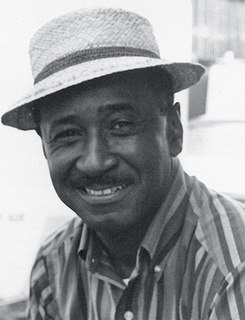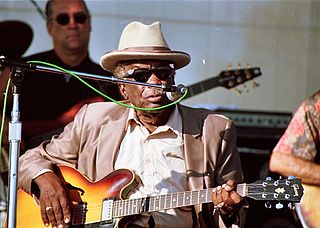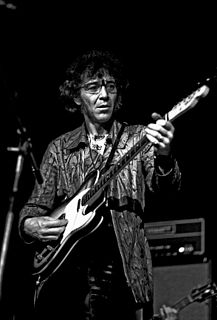A Quote by Johnny Ramistella
If you're going to get into music, you've got to learn the 12-bar blues.
Related Quotes
After my early days of being a passionate young Elvis fan, Chuck Berry, Little Richard, etc. I got interested in Ray Charles and Ella Fitzgerald. Then I got turned on to the blues. I realized how important it was to our music in England at the time. Everyone was into the blues. Then you start looking at the different kinds of blues, and you follow the journey backwards from Chicago to earlier times back down to the Delta to the Memphis Blues.
You learn from music, from watching great athletes at work - how disciplined they are, how they move. You learn these things by watching a shortstop at work, how he concentrates on one thing at a time. You learn from classic music, from the blues and jazz, from bluegrass. From all this, you learn how to sustain a great line without bringing in unnecessary words.
We played one warm-up gig at this bar that was kinda like that bar in 'The Blues Brothers' with the chicken wire. This place called The Brick House, in Housatonic. I really can't believe we're going to play for people in New York City. I'm terrified, but it's a small enough room. But it's really just supposed to be for the fun of it.
I'm a bluesman moving through a blues-soaked America, a blues-soaked world, a planet where catastrophe and celebration... "Joy and Pain" - sit side by side. The blues started off in some field, in some plantation, in some mind, in some imagination, in some heart. The blues blew over to the next plantation, and then the next state. The blues went south to north, got electrified and even sanctified. The blues got mixed up with jazz and gospel and rock and roll.


































